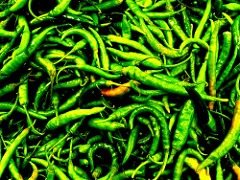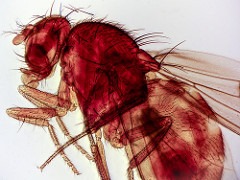
GM/Biotech Crops Report – February 2019
11th February 2019- GM/Biotech Crops Monthly Reports (BELOW) form part of BCPC’s free three-tier Biotech Crops Info service.
- This service also includes a weekly round-up of news from around the globe – see BCPC Newslink GM Crops section.
- Plus – Free access database on over 300 GM/biotech products covering 23 crops in the global market visit BCPC’s GM/Biotech Crops Manual – Register here for free access.
Already registered? Click here
GM/Biotech Crops Monthly Report February 2019
 | GM yields go mainstream |
|---|---|
| Brazil beets the way for Europe Another sugarcane with resistance to Lepidopteran insect attack has been approved for food use in Brazil. Could this help pave the way for GM sugar beet in Europe and the UK? More Pic: John Brandauer |  |
 | An egg a day keeps the doctor away The benefit of anti-cancer drugs specifically designed to fight your cancer is one of the exciting developments of genetic modification and now a more efficient way of producing specific anti-cancer drugs has been developed by modifying hens to produce the specific drugs in their eggs. More Pic: Jonathan Pearson |
| More improvement to photosynthetic efficiency Rubisco is one enzyme that converts CO2 and water to sugars but apparently 20% of the time it uses oxygen instead of CO2. This creates a compound toxic to the plant that must be metabolised internally. This costs energy and improving the efficiency of metabolising this compound can improve yields by up to 40%. More Pic: Bex Ross |  |
 | Silencing the Colorado beetle Researchers at the University of Turkey have encoded two potato varieties to produce the RNAi required to silence the moulting gene in the beetle. Results show a 15 – 80% mortality in the beetle and it could be a way of dealing with these potato pests. More Pic: Anton Vakulenko |
| Ripening tomatoes One of the first GM crops to catch the public eye was the Flavr Savr tomato. It had increased shelf life before going rotten and now the same effect has been achieved using CRISPR editing. If CRISPR editing is eventually accepted as ‘non-GM’ perhaps they or the products that they go in will appear in shops here in the UK. More Pic:J |  |
 | More tomatoes Adding chillies to spice up your tomato sauce may soon look so last year. Researchers in Brazil are investigating ways of producing the capsaicinoids directly in the tomatoes using gene editing. More Pic:Rohit Mattoo |
| Popeye to switch to bread Popeye always ate spinach to boost his iron but now a team at John Innes in Norfolk have developed wheat that has 10x more iron than current commercial varieties and have applied for permission to conduct field trials. More Pic:Blue Jules |  |
 | Gluten-free wheat Not all gluten is bad, even for sufferers of celiac disease and now researchers at Wageningen University have used CRISPR-Cas9 editing to remove some of the immunogenic forms of gluten from wheat. However, before you reach for the cake tin there are more gluten genes to be edited before the flour is safe for celiac disease sufferers. More |
| CRISPR Control A new technique has been developed in California to control fruit flies and mosquitoes. Gene-edited eggs are introduced into the population that only result in the emergence of sterile males. The benefit of the new system is that it is not passed on to future generations so will not have long-term effects on food chains and the environment. More Pic: Ken Schwarz |  |
THE LATEST ADDITIONS TO THE GM/BIOTECH DATABASE ARE:
• MON89034 x TC1507 x NK603 x MIR162 x DAS40278 – maize with Lepidopteran insect resistance and tolerance of glyphosate, glufosinate and 2,4-D approved for food use in South Korea.
• DAS40278 – maize with 2,4-D tolerance approved for food and environmental use in Argentina.
• DAS40278 x NK603 – maize with tolerance of glyphosate and 2,4-D approved for food and environmental use in Argentina.
• MON87427 – maize with tolerance of glyphosate approved for food and environmental use in Argentina.
• MON87411 – maize with Coleopteran insect resistance and tolerance of glyphosate approved for food and environmental use in Argentina.
• HB4 – soybean with drought tolerance approved for food, feed and cultivation in Argentina and food use in America.
• HB4 x GTS 40-3-2 – soybean with improved drought tolerance and tolerance of glyphosate approved for food and environmental use in Argentina.
• FG72 – soybean with tolerance of glyphosate and isoxaflutole herbicides approved for food and environmental use in Argentina.
• CTC91087-6 – sugarcane with Lepidopteran insect resistance approved for food, feed and environmental use in Brazil.
• AAT 709A – cowpea resistant to Lepidopteran insects approved for environmental use in Nigeria.
FOR INSTANT ACCESS TO GM BIOTECH MANUAL CLICK HERE (Registration required)
Already Registered? Click here to access

